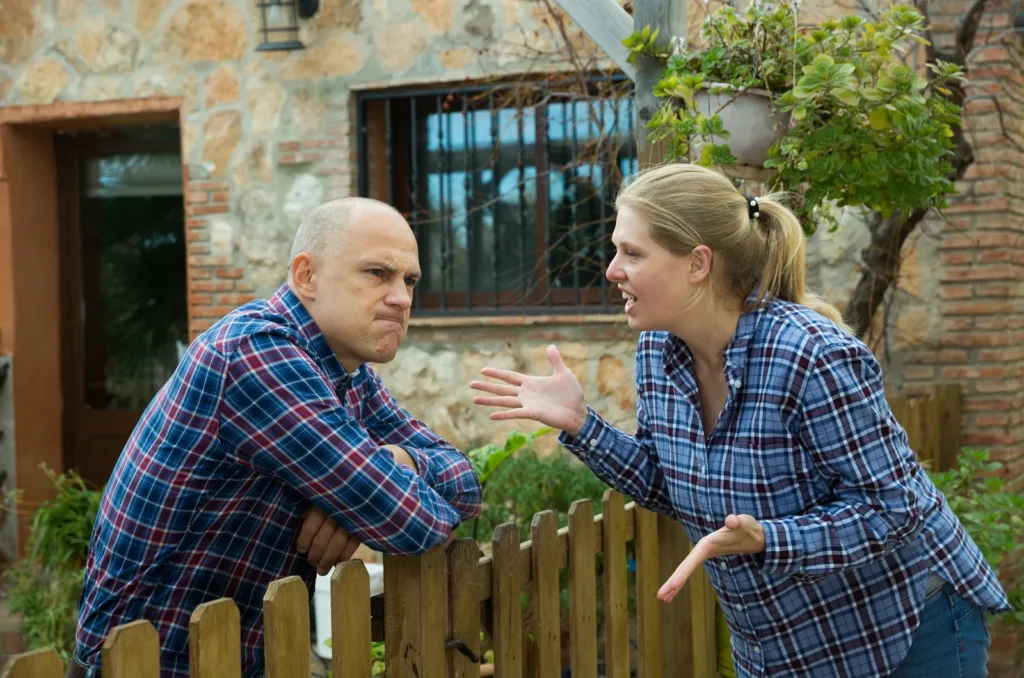Do you feel your neighbors don’t like you? Are you interested in knowing the potential signs your neighbors don’t like you? Keep reading to learn the signs your neighbors don’t like you.

Having a good relationship with your neighbors can significantly enhance your living experience, fostering a sense of community and support. However, not all neighborly relationships are positive.
Here, we will help you know the signs that your neighbors may not like you, the potential causes of these strained relationships, and strategies to improve them.
Signs Your Neighbors Don’t Like You

Here are potential signs your neighbors don’t like you:
1. Your Neighbors Avoid Communicating With You
One of the most obvious signs that your neighbors might not like you is if they actively avoid you and show a lack of interest in communicating. This can manifest through them finding excuses to end conversations quickly or actively steering clear when they see you.
If your friendly “good morning” or “hello” is consistently met with indifference or silence, it’s a clear sign that your neighbors might not be thrilled to see you. Additionally, if your neighbors actively avoid making eye contact with you, it’s a non-verbal cue that they might not want to engage in conversations with you.
This avoidance behavior can create an uncomfortable atmosphere, making you feel unwelcome in your own neighborhood. Over time, such consistent avoidance can erode any potential for building a friendly relationship and can leave you feeling isolated.
2. Your Neighbors Always Give You Negative Body Language
Non-verbal cues can speak volumes to people who are very sensitive to gestures. Negative body language such as avoiding eye contact, crossed arms, or forced smiles can be strong indicators that your neighbors harbor negative feelings towards you.
For instance, if you notice your neighbors frequently exhibiting closed-off postures, it’s a sign that they are not comfortable around you. Forced smiles or grimaces instead of genuine expressions of friendliness also signal that their pleasantness is not sincere.
Such negative body language creates an unwelcoming vibe and can make it clear that your neighbors are not interested in fostering a positive relationship with you. Over time, these non-verbal signals can contribute to a growing sense of unease and tension.
3. You Get Frequent Noise Complaints From Them
Frequent noise complaints from your neighbors can be a clear sign of their discontent. If you find yourself frequently dealing with complaints from your neighbors, it’s a strong indication that something’s amiss.
It might indicate that they find your behavior inconsiderate and disruptive to their peace and quiet. Most times, an excess of complaints from your neighbors suggests they don’t like you.
This persistent criticism indicates that your neighbors are particularly sensitive to your actions and may be looking for reasons to express their displeasure. Such complaints can strain relationships and create an ongoing atmosphere of conflict and dissatisfaction, making everyday life uncomfortable.
4. They Get Into Arguments About Property Boundary
Arguments and disputes about property boundaries can also signify strained relationships. If your neighbors often complain about your encroachments or raise concerns about property lines, it might indicate a lack of harmony.
In addition, if your neighbors frequently engage in boundary disputes or encroach on your property without regard, it’s a sign of underlying tension in the neighborhood. These arguments often stem from a lack of mutual respect and can escalate into significant conflicts if not addressed.
Property disputes can create lasting animosity and can be a clear indicator that your neighbors have deeper issues with you beyond the immediate disagreements.
5. Your Neighbors Show Unwillingness to Help or Cooperate
A neighborhood is a community, and cooperation is key to a peaceful neighborhood. If your neighbors consistently refuse to lend a helping hand or cooperate in neighborhood matters, it could be a sign of a rocky relationship.
Furthermore, when your interactions with your neighbors are curt and impersonal, it’s a clear indication that the warmth in your relationship has dissipated. If they only engage with you when necessary and keep conversations brief, it’s time to reassess the situation.
This lack of cooperation can be particularly noticeable during community events or when mutual assistance is required. An unwillingness to help reflects a lack of goodwill and can be a significant barrier to building a supportive community.
6. They Always Gossip and Spread Rumors About You
In close-knit communities, gossip spreads like wildfire. If you find yourself consistently at the center of neighborhood rumors, it’s likely that your neighbors are talking about you, and not in a favorable way.
This gossip can damage your reputation and create an environment of mistrust and hostility. When neighbors spread rumors, it often indicates underlying jealousy or resentment. Being the subject of such talk can be hurtful and isolating, making you feel alienated from the community.
This behavior not only affects your personal well-being but also undermines the potential for a harmonious neighborhood.
7. Your Neighbors Isolate and Exclude You From Neighborhood Events
Feeling left out of neighborhood events or gatherings can be distressing. If your neighbors frequently organize events and deliberately exclude you, it’s a strong indicator that they prefer to keep their distance.
In a friendly neighborhood, invitations to gatherings and social events are commonplace. If you’re consistently excluded from neighborhood get-togethers or gatherings, it may be a sign that your neighbors aren’t eager to include you in their social circle.
This exclusion can make you feel unwelcome and can highlight the social rift between you and your neighbors. Being left out of communal activities prevents you from building connections and enjoying the full benefits of neighborhood life.
In conclusion, addressing these issues calmly and assertively can foster better relationships within your community. Trust your instincts and take appropriate steps to ensure your peace of mind and harmony in your neighborhood.
Related Searches:
